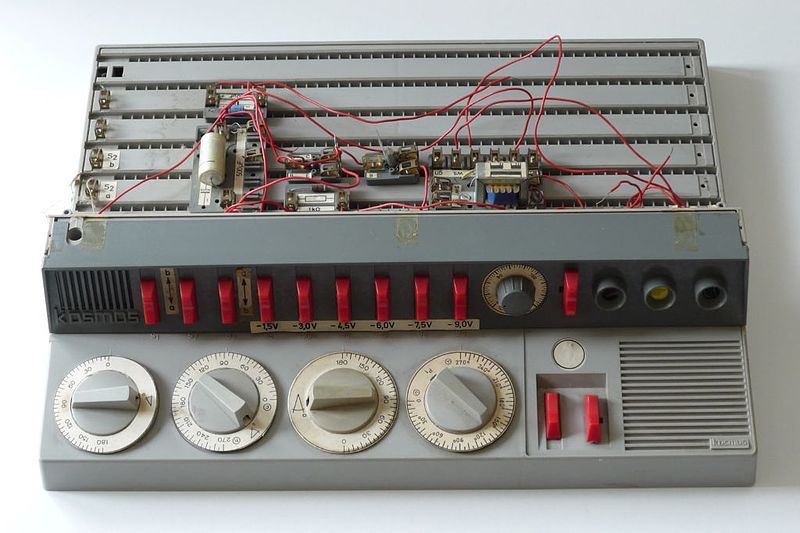KOSMOS-Experimental Kit "Elektronic-Lab XG/XR/XS" (about 1976)
About 50 years ago they were already famous and popular, the experimentation kits from Kosmos and are still available today in modified versions. Since then, they have been published by Franckh'sche Verlagsbuchhandlung W. Keller & Co., which is known for publishing various specialized books. The experimental kits at that time in their last expansion stage roughly represented the level and requirements for a young person completing the 10th to 12th grade, so it is fair to say that the experimental kit reaches an upscale target group. Thus, there are many topics from the scientific field, the first dealt with electrical engineering in 1922, followed by a radioman, with which even electromagnetic waves could be generated for radio transmission or radio technology was possible. There were detector receivers, small transmitters, and of course receivers with both electron tubes and semiconductors. Finally, kits dealing with digital logic and computer technology, as well as chemistry kits, optics, and astronomy. Usually arranged so that there was an entry-level kit with extensions. In this way, accompanied by the school, many of the young people found their way into science.
It must be noted that many of these experimental kits no longer exist in the same form today, usually for reasons of product liability. What company might be sued if the end customer drinks sulfurous acid, or disconnects the wires from the batteries and plugs them into the wall socket, or manipulates the transmitter to interfere with protected radio frequencies. As Nobel Laureate Prof. Richard Phillips Feynman said decades after the Trinity test at White Sands in New Mexico State, "We were all not children by then!" He, like many others, protected only by sunglasses, faced the first nuclear weapons test at the age of 27. So it remains an open question whether intelligence protects against folly. And nevertheless, the limited modern experimental kits are certainly also a loss.

